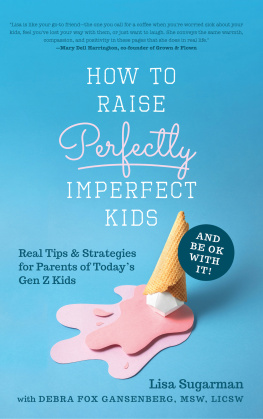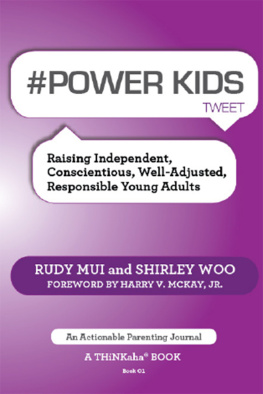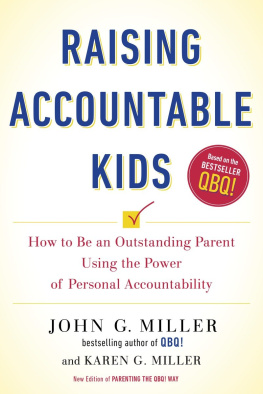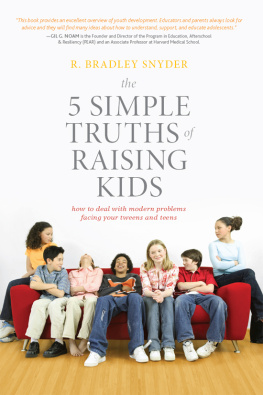Copyright 2015 by Darlene Sweetland and Ron Stolberg
Cover and internal design 2015 by Sourcebooks, Inc.
Cover designed by The Book Designers
Cover image Popartic/Shutterstock.com
Sourcebooks and the colophon are registered trademarks of Sourcebooks, Inc.
All rights reserved. No part of this book may be reproduced in any form or by any electronic or mechanical means including information storage and retrieval systemsexcept in the case of brief quotations embodied in critical articles or reviewswithout permission in writing from its publisher, Sourcebooks, Inc.
This publication is designed to provide accurate and authoritative information in regard to the subject matter covered. It is sold with the understanding that the publisher is not engaged in rendering legal, accounting, or other professional service. If legal advice or other expert assistance is required, the services of a competent professional person should be sought.From a Declaration of Principles Jointly Adopted by a Committee of the American Bar Association and a Committee of Publishers and Associations
All brand names and product names used in this book are trademarks, registered trademarks, or trade names of their respective holders. Sourcebooks, Inc., is not associated with any product or vendor in this book.
Published by Sourcebooks, Inc.
P.O. Box 4410, Naperville, Illinois 60567-4410
(630) 961-3900
Fax: (630) 961-2168
www.sourcebooks.com
Library of Congress Cataloging-in-Publication Data
Sweetland, Darlene.
Teaching kids to think : raising confident, independent, and thoughtful children in an age of instant gratification / Darlene Sweetland, Ron Stolberg.
pages cm
Includes bibliographical references and index.
(trade : alk. paper) 1. Problem solving in children. 2. Frustration in children. 3. Parenting. 4. Parent and child. 5. InternetSocial aspects. I. Stolberg, Ronald A. II. Title.
BF723.P8S94 2015
649.6dc23
2014035534
Contents
Acknowledgments
It goes without saying that countless people have contributed to this project in ways that they may never know. Sometimes we needed the little things like simple words of encouragement and a gentle nudge to keep working. Other times we needed someone to bounce ideas off of or insights into the scary world of publishing. To all of you we offer a heartfelt thank-you.
None of this would have been possible without the amazing families that we work with. They come to our office looking for support, and in that process, they share their secrets, fears, and worries. It is said that asking for help is one of the hardest things to do, so we thank the brave families that have let us into their lives and asked for help.
We interviewed many teachers, school administrators, coaches, and employers when writing this book. They provided numerous examples and insights about their experiences with the challenges they face with this generation of kids. We are so grateful for their time and expertise in sharing what they know. They are clearly very passionate and committed to raising children to be confident, independent, and thoughtful.
We also need to thank Donna Pinto. Donna is an accomplished author and editor in her own right, and we greatly value her opinion and critical edit of our work. She helped us organize our thoughts, and as she read our work, she gave us confidence that we were on the right track.
Family is everything to us. We are both so fortunate to have parents who taught us to dream big. Darryl and Barbara Sweetland and Roger and Mary Stolberg have been a never-ending source of encouragement and support. Our children, Aaron and Drew, have been equally important in this regard, as they remind us daily that being a parent is the greatest job in the world. We are eternally grateful to all of them.
Our agent, Jill Marr, and the entire Sandra Dijkstra Literary Agency has shown such positive enthusiasm about this project from the start. We knew after only a few minutes with Jill that she was the one we wanted representing us and this book. She understood our message and had faith that this book would communicate it well. It has been so comforting to us knowing that she was as committed and passionate about this project as we were.
Finally, none of this would be possible without the fullest support of our editorial director, Shana Drehs, at Sourcebooks Inc. We have no doubt that Shana and her talented team of editors have refined and improved our message in ways we simply could not have done on our own. We are confident that we have the best team working with us to make this project everything we ever dreamt it could be.
I NTRODUCTION
The Instant Gratification Generation
As clinical psychologists, we have worked with families and educators for more than twenty years. Recently, we have found ourselves marveling at the number of children and teens who become easily frustrated when asked to solve a simple social dilemma or deal with a problem on their own. Here are only a few examples of situations we witnessed in our therapy practices the week we began writing this book:
A seven-year-old girl became angry at her parent and screamed, My iPad is not charged! You didnt charge my iPad!
A mother told her disappointed ten-year-old son, I will call his mom and tell her that her son left you out of the handball game.
A seventh-grade girl panicked because she forgot to study for a test, and her father said, I will send your teacher an email and ask if you can take it a day later.
A high school boy was unhappy about a teacher he was assigned for a history class, and his mother said, I will call the school and see if I can get your schedule changed.
A teenage girl grew annoyed at her mother and said, I need the iPhone 5, not your old phone because yours is lame!
Whether these kids were dealing with friendship confusion, an academic challenge, or a parental dispute, their responses were the same. They were upset by the situation and became increasingly angry, anxious, or even panicked when their problem wasnt solved right away. It never seemed to cross their minds to take a moment to figure out a possible solution; instead, they launched straight into meltdown mode. We observe this troubling pattern in our personal lives as well as our professional lives. In addition, parents, teachers, administrators, and coaches are all talking to us about their concerns about what they are seeing. The need for someone to solve their problem right away is rampant in many environments and talked about all the time.
More recently, this low tolerance for frustration has become a hot-button topic brought up by colleagues, friends, and family alike. It has also been highlighted in the media with articles such as Millennials: The Me Me Me Generation published in Time magazine in May 2013 and Are We Raising a Generation of Helpless Kids? on the Huffington Post website in February 2012. The trend continues to worsen, and as child psychologists and concerned parents, we found ourselves asking the same questions over and over: What is happening with this generation of kids? Why do they expect everything to be given to them? And where did this sense of entitlement come from? We then realized that our society is enabling this low-frustration tolerance.














